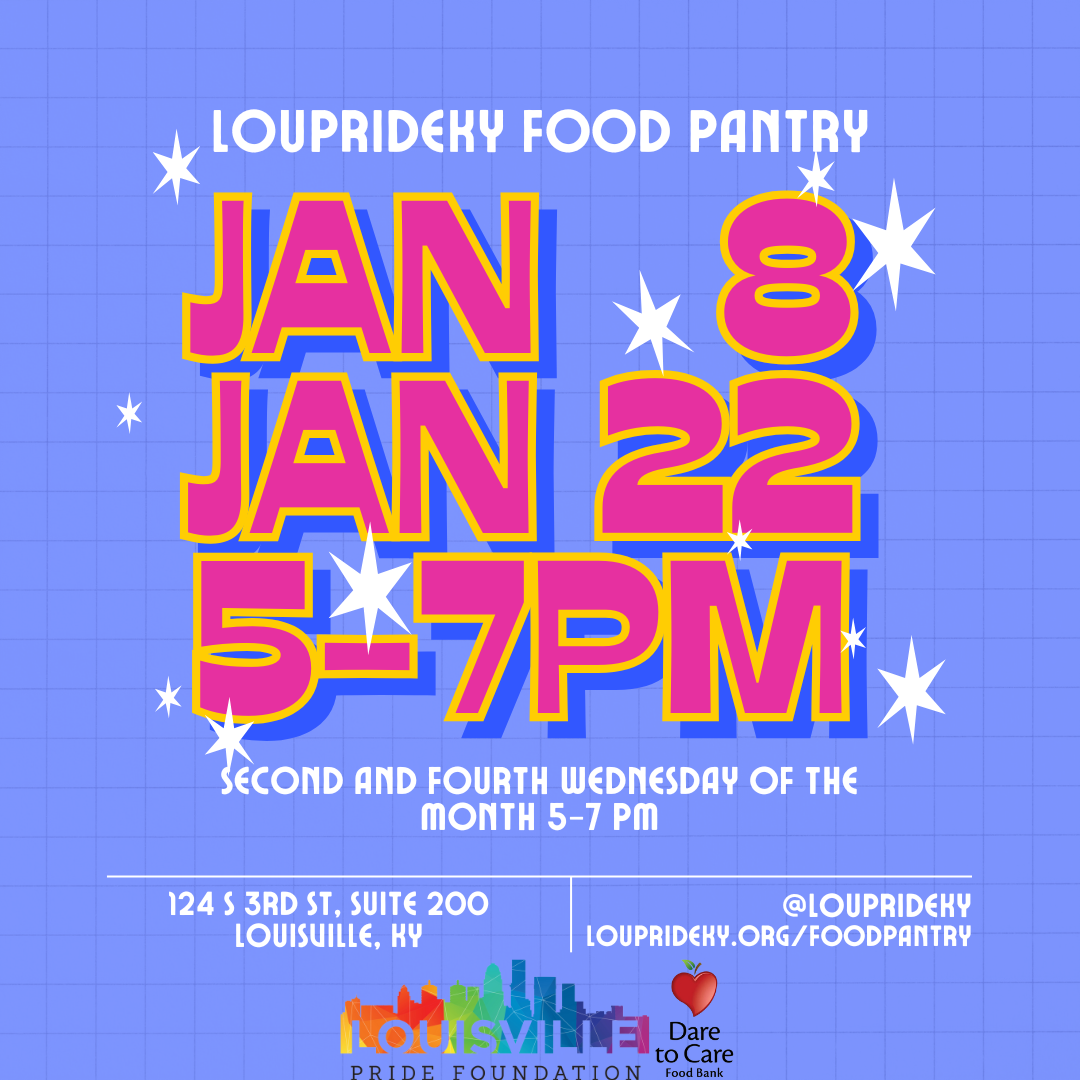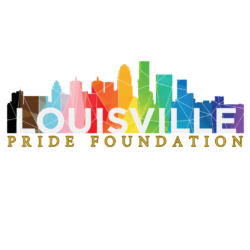Louisville Pride Center Food Pantry
2nd and 4th Wednesday of the month from 5PM-7PM
1244 S 3rd Street, Suite 200, Louisville, KY 40203
To use our Amazon Gift Registry, click this link.


On August 28th, the Louisville Pride Center opened the food pantry for the first time and was met with a heartwarming response. We’re thrilled that so many felt safe and comfortable reaching out and taking advantage of this new service. This Partnership with Dare to Care is the first and only secular food pantry in the area, specifically designed to serve the LGBTQIA+ community. We are committed to providing a safe, welcoming, and inclusive environment where individuals can access essential food resources with dignity and respect.
What is food insecurity?
Food insecurity is the state of being without reliable access to a sufficient quantity of affordable, nutritious food. It affects individuals and families across various demographics, including the LGBTQIA+ community. Food insecurity is not just about hunger; it’s about the ongoing uncertainty of where the next meal will come from and whether it will be nutritious.
Food insecurity can impact people in many ways, including limiting access to fresh produce, a lack of safe and affordable places to shop, and barriers to accessing food assistance programs. For members of the LGBTQIA+ community, these challenges can be compounded by issues such as discrimination, stigma, and financial instability.
Food insecurity affects people of all ages and family structures. Single adults, seniors, and couples without children are also in need of assistance, and food pantries serve a wide range of community members.
Many believe that food insecurity results from poor budgeting or choices. In reality, it is often about structural issues, such as the cost-of-living outpacing wages or systemic barriers that prevent access to resources.
This harmful stereotype overlooks the complexities of food insecurity. Individuals who seek help from food pantries are often working multiple jobs, managing health issues, or dealing with other significant life challenges. Seeking help is a sign of resourcefulness, not a lack of effort.
While food insecurity is more common among those with lower incomes, it can affect people across different socioeconomic backgrounds. Factors like job loss, unexpected expenses, and health issues can create temporary or long-term food insecurity, regardless of income level.
Many people incorrectly believe that food assistance programs are only available to U.S. citizens. In reality, many programs provide support regardless of immigration status, focusing on the immediate need for food. The Louisville Pride Center, and its Food Pantry Partner, Dare to Care, do not report or collect information that would jeopardize immigration status.
Want to get involved?
If you’d like to donate goods to the food pantry, you can complete a drop off by visiting the center between 2PM – 7PM, Tuesday thru Friday, or at any of our events that take place at the center during the week. If donating refrigerated or frozen goods, please call ahead to ensure timely storage is possible.
To use our Amazon Gift Registry, click this link.

Mindful and Demure Donations: What to Give and What to Consider
For those looking to support the Louisville Pride Center’s Food Pantry, thoughtful donations can make a significant difference. Here’s a guide to ensure your contributions are as effective and helpful as possible:
1. Focus on Nutritional Value
Canned Goods: Opt for low-sodium and low-sugar options. Canned vegetables, beans, and fruits are valuable, but prioritize items with no added sugars or excessive salt.
Whole Grains: Donate brown rice, whole grain pasta, and oatmeal. These provide more nutrients and fiber than refined grains.
Protein Sources: Include canned tuna, beans, lentils, and nut butters. These are crucial for balanced nutrition and can be used in a variety of meals.
2. Consider Special Needs
Gluten-Free and Allergies: Many people have dietary restrictions. Donations of gluten-free products and allergy-friendly options can help meet diverse needs.
Culturally Relevant Foods: Consider donating items that reflect the diverse backgrounds of the people served by food pantries. Ask your local international food market if they have recommendations for products that people often get. You may discover a new favorite dish yourself!
3. Practical Packaging
Unopened and Shelf-Stable: Ensure that all food items are unopened and within their expiration dates. Shelf-stable items are preferred as they last longer and are easier to store. Any items that need to be refrigerated or frozen, we ask you give us a call so we can ensure that someone is available to quickly store them in their respective containers.
Easy-to-Open Containers: Cans with pull-tabs and other easy-to-open packaging can be more accessible, especially for those with limited resources or physical disabilities.
4. Personal Care Items
Many food pantries also appreciate donations of personal care items like soap, shampoo, and toothpaste. These are essential for overall well-being and are often in high demand. Menstruation products are especially needed!
5. Cash Donations
Monetary contributions can be highly effective, as they allow food pantries to purchase fresh produce and other necessities not always available through donated goods.
How You Can Help
Your support can make a tangible difference in combating food insecurity in the LGBTQIA+ community and beyond. Whether through donations, volunteering, or spreading awareness, every effort counts. If you or someone you know is facing food insecurity, remember that help is available and seeking assistance is a courageous step toward stability. We’re here for you. <3
For information how your business or organization can get involved with the Louisville Pride Center Food Pantry, please email sydni.hampton@louprideky.org or call 502-498-4289. If you would like to become a volunteer with the Louisville Pride Foundation, please visit LouPrideKY.org/Volunteer.

